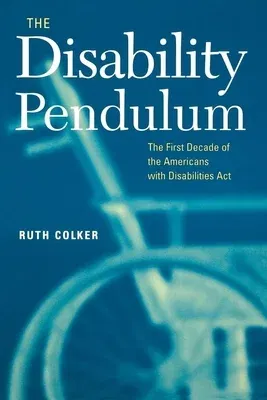Ruth Colker
(Author)The Disability Pendulum: The First Decade of the Americans with Disabilities ACTHardcover, 1 May 2005

Qty
1
Turbo
Ships in 2 - 3 days
In Stock
Free Delivery
Cash on Delivery
15 Days
Free Returns
Secure Checkout

Part of Series
Critical America
Part of Series
Critical America (New York University Hardcover)
Print Length
245 pages
Language
English
Publisher
New York University Press
Date Published
1 May 2005
ISBN-10
0814716458
ISBN-13
9780814716458
Description
Product Details
Author:
Book Format:
Hardcover
Country of Origin:
US
Date Published:
1 May 2005
Dimensions:
23.52 x
16.26 x
2.13 cm
ISBN-10:
0814716458
ISBN-13:
9780814716458
Language:
English
Location:
New York
Pages:
245
Publisher:
Weight:
485.34 gm